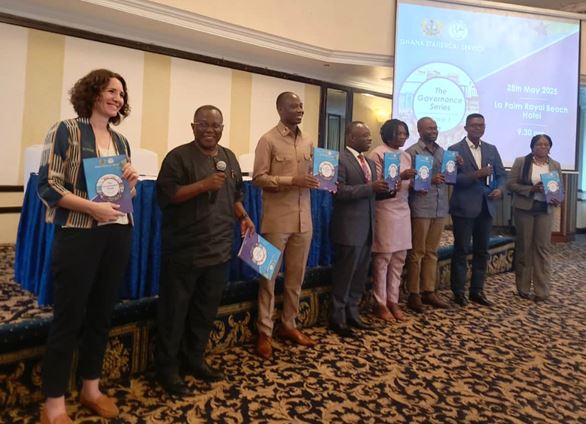By Juliet ETEFE ([email protected])
A new report by the Ghana Statistical Service (GSS) has revealed that a significant majority of Ghanaians feel excluded from governance processes, with over 70 percent of respondents saying they have little to no influence on national decision-making.
The findings reveal significant challenges in governance inclusiveness and responsiveness.
It stated: “Over 70 percent of respondents reported that the political system offers little or no opportunity for ordinary citizens to influence decision-making, signalling limited channels for public participation and a general perception of unresponsiveness by decision-makers”.
These findings form part of the Governance Series Wave 1 Report, a survey aimed at tracking citizen experiences with governance in Ghana.
The data for this survey was sourced from a nationally representative survey conducted by the GSS using Computer-Assisted Telephone Interviewing (CATI) from the 2nd to 20th January 2025, for the reference period of January to December 2024.
It reached 7,248 respondents drawn from a nationally representative sample of 15,400 households based on the 2021 Population and Housing Census. It provides a baseline for measuring progress on Sustainable Development Goal (SDG) 16.7.2, which focuses on inclusive, participatory and representative decision-making.
According to the report, only 12 percent of respondents said the political system allows “a lot” or “a great deal” of room for ordinary citizens to participate in decisions that affect them. In contrast, more than seven out of ten Ghanaians expressed a sense of disconnection and disenfranchisement, indicating the system provides little to no space for their voices.
Most excluded
Disaggregated data from the report has it that young people aged 18–24 years reported the highest levels of exclusion, with about 55 percent saying they are not allowed any input at all in government decisions. Similarly, older citizens aged 65 and above also felt sidelined with nearly half (48.6%) of them reporting no influence.
Women, rural residents and persons with difficulty in performing activities were also among the groups that reported higher rates of non-inclusion. For instance, 47.4 percent of people living with disabilities said they felt completely excluded, with the percentage rising to 66.9 percent among persons with self-care difficulties and about half of those with speech impairments.
In terms of location, rural Ghanaians (45.8%) were more likely to report ‘no say in governance’ than their urban counterparts (40.5%).
Regional disparities
The findings also highlight stark regional variations – noting that Volta (62.2%), Upper East (61.8%) and North East (58%) Regions recorded the highest levels of exclusion, with respondents saying they had no input in how decisions were made. Conversely, Eastern (20.3%), Oti (19.6%) and Upper West (18.3%) Regions had the highest proportion of people who said they had “a lot” or “a great deal” of influence.
These disparities suggest that opportunities for citizen participation are unevenly distributed across the country, raising questions about the reach and effectiveness of local governance and civic engagement initiatives.
Inclusive governance
Speaking at the report launch in Accra, Government Statistician Dr. Alhassan Iddrisu emphasised the urgent need to build a governance system that is genuinely participatory.
“As we reflect on these insights, let us be reminded that governance reform is not an abstract ideal; it is a daily commitment to ensuring that the systems and institutions we build are responsive to the needs and aspirations of all Ghanaians. It is about ensuring that every Ghanaian, regardless of status or circumstance, feels seen, heard and served,” Dr. Iddrisu said.
He added that the Governance Series will be conducted bi-annually to monitor changes in citizen experiences and inform policy interventions.










